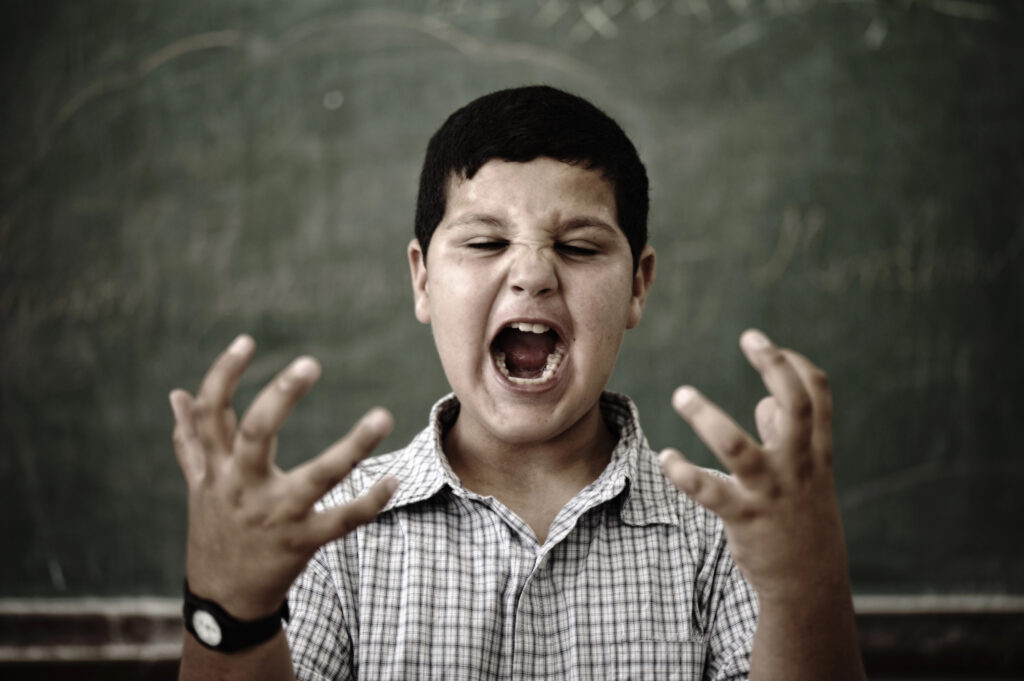Creating Harmony at Home
Understanding Anger and Aggression in Children and Teens
Some children and teens struggle with anger and aggression. It seems as if small things constantly set them off and they have little control over how to manage not getting their way. Anger and aggression often occur when they do not know how to cope with stress. Often, anger feels powerful and gives the misconception of feeling in control of the situation when it is the exact opposite. When anger turns into aggression, it can lead to parents feeling as if they are walking on eggshells in their own home. Consequently, there is fear that at any minute your son or daughter may explode. As a result, the explosiveness may lead to more arguments between you and your partner, cause you to wonder how much it’s impacting siblings, and feel as though you are failing as a parent.
There are several different reasons why children and teens can struggle with anger and/or aggression. It could be due to stress in the home or outside of the home, difficulty connecting to peers, bullying or being bullied, seeing or being the victim of violence, puberty/hormonal changes, feeling decisions are often out of their control, or even a lack of communication skills.
Don’t let your home feel like a war zone.
Take steps to protect your family and make your home a safe place for everyone. This is a hard road to travel and it should not be done alone. Get your child or teen counseling to help them learn how to cope with anger and/or aggression so that you can have a healthy relationship with your son or daughter.

“Peace is not the absence of conflict, but the ability to cope with it.”
– Mahatma Gandhi
Common Symptoms of Anger and Aggression in Children and Teens
Recognizing the symptoms of anger and aggression is the first step toward seeking help. If your child or teen is displaying any of the following behaviors, it may be time to consider counseling:
Breaking or Throwing Items
Using drugs or alcohol to cope with emotions, which can exacerbate anger issues.
Mood Swings
Rapid and extreme changes in mood, often shifting from calm to angry quickly.
Violence
Physical aggression towards others or themselves, posing a risk of harm.
Low Self-Esteem
Negative self-view contributing to feelings of anger and worthlessness that lead to spiraling behaviors.
Academic Failure
Poor performance in school due to unmanaged anger and stress, affecting future opportunities.
Substance Abuse
Using drugs or alcohol to cope with emotions, which can exacerbate anger issues.
Extreme Identification with a Social Group
Strong attachment to a group or person influencing behavior negatively.
Blacking Out
Episodes where they do not remember incidents due to intense anger, leading to confusion and concern.
Yelling and Screaming
Loud verbal outbursts that are disproportionate to the situation, creating tension.
The Power of Therapy
How Counseling Can Help with Anger and Aggression
Counseling provides a supportive environment where your child or teen can learn to manage their anger and aggression. Here are some of the ways counseling can assist in reducing these behaviors:
Decreasing Tension
Helping to reduce the overall stress levels that contribute to anger.
Increasing Self-Esteem
Building a positive self-image to help them feel better about themselves.
Managing Conflict
Improving problem-solving skills to handle disagreements constructively.
Improving Communication
Teaching effective ways to express feelings and needs.
Decreasing Anger and Aggression
Teaching techniques to manage and reduce outbursts.
Learning New Coping Skills
Developing strategies to handle stress and frustration in a healthier way.
Increasing Overall Functioning
Enhancing stability and day-to-day functioning.
Improving Academic Performance
Providing tools to manage emotions, leading to better focus and success in school.
Dedicated to Transformative Change
Our Approach to Treating Anger and Aggression
At Davis-Smith Mental Health, we understand that anger in children and teens is often a manifestation of deeper, underlying emotions. Our approach to counseling is personalized to address the unique needs of each individual. Our experienced therapists take the time to build trust, knowing that children and teens with anger issues often have protective walls up. Establishing a strong therapeutic relationship is crucial for effective treatment.
We focus on recognizing and leveraging the strengths of each child or teen. By highlighting their talents and abilities, we help them see their own worth, which is often overshadowed by their anger. This positive reinforcement is key to their progress and helps in building their self-esteem.
Our counseling sessions aim to uncover the root causes of anger, whether it’s stress, fear, or other emotions. We then work on developing coping skills that are practical and effective. This process is done at the client’s pace, ensuring they feel comfortable and supported throughout their journey.
Understanding and processing emotions is a crucial part of managing anger. We provide a safe space for clients to explore their feelings and develop healthier ways to express them. By addressing these issues at a comfortable pace, we help clients move toward a more balanced and fulfilling life.
We are aware of the various factors contributing to anger and aggression, including the impact of video games and peer pressure. Our goal is to help children and teens embrace who they are and understand that they are accepted and valued. We work on helping them build resilience and confidence, so they can handle life’s challenges more effectively.
At Davis-Smith Mental Health, our mission is to support our clients every step of the way. We are committed to helping them achieve lasting change and reach their mental wellness goals. Our compassionate and individualized approach ensures that clients receive the care and support they need to thrive.
